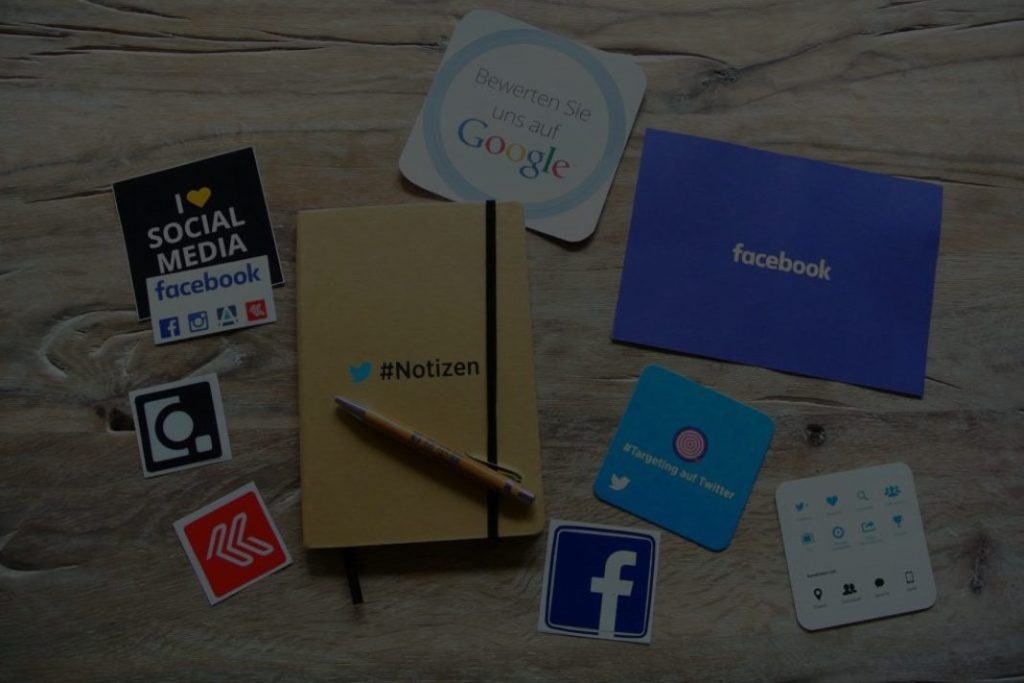The Future of Mobile Apps: Trends and Innovations
Top Mobile Apps Development Trends in 2025: AI, AR, 5G, No-Code, Security & UX Innovations.

Mobile apps have completely changed how we use technology and communicate. They’re essential to our daily lives. Mobile app development is changing. Big shifts are coming soon. AI and AR: these innovations are impacting users and businesses alike. Better user experiences are a given, but the potential for business growth is huge. Let’s look at the big mobile app trends coming up and how they’ll change your app development plans.
The Rise of Artificial Intelligence
Artificial Intelligence (AI) has transitioned from a buzzword to a fundamental component of mobile app development. Apps are changing thanks to AI. They now offer super personalized experiences based on what you do.
Personalized User Experiences
AI algorithms analyze user data to tailor app interactions. This lets apps suggest stuff you’ll probably enjoy—products, entertainment, or other services. Think about how Netflix suggests shows—that’s AI at work! It analyzes your viewing history to offer up shows you might enjoy, boosting your overall satisfaction. Spotify does the same thing with music.
Intelligent Virtual Assistants
The integration of AI-powered virtual assistants has become commonplace. Siri and Google Assistant understand what you say, making it easier to chat with your phone or speaker. It’s easier than ever to use mobile apps; they’re really improving!
Predictive Analytics
Mobile apps are increasingly using predictive analytics to anticipate user needs. Using past behavior, apps cleverly anticipate your needs and offer helpful suggestions. Boosting user satisfaction also boosts how often they use the app. It’s a direct correlation.
Building Worlds with Code: The Power of Augmented and Virtual Reality
Retail, education, and healthcare are just a few of the many places you’ll find augmented and virtual reality now. It’s not limited to video games anymore.
Enhanced Shopping Experiences
Retailers are leveraging AR to create immersive shopping experiences. Imagine this: you’re shopping for a new sofa. An app shows you exactly how it’ll look in your living room. No more guessing games! It’s like having a personal interior designer right in your pocket.
Online and in-store shopping are now better connected thanks to this technology; customers feel more confident as a result.
Training and Education
VR is revolutionizing training and educational environments. Imagine practicing surgery without ever touching a real patient! That’s what VR lets medical professionals do. They hone their skills safely. Learning improves with VR, and people remember more of what they’ve learned. Retention rates go up.
Real Estate Innovations
The real estate sector has also embraced AR and VR. Check out homes from anywhere! Virtual tours speed up the home-buying process. The pandemic made this technology really important because people couldn’t visit each other in person as much.
5G: Faster Downloads, Smarter Cities, and a Transformed Future
Mobile apps are in for a huge change with the arrival of 5G. 5G’s speed and low latency will allow for more advanced apps.
Processing Data Happens Instantly
Real-time data is processed by 5G, making it perfect for apps that need superfast responses. Think self-driving cars or online gaming – the faster the data moves, the better the experience. Gaming apps run smoother now, and financial ones give you live stock info.
Enhanced Connectivity
The increased bandwidth of 5G means that more devices can connect simultaneously without compromising performance. For IoT, where lots of devices need to connect effortlessly, this is a huge advantage.
Improved Streaming Services
With 5G, users can enjoy high-definition streaming without buffering. Video conferencing, live-streaming and online gaming will all be better thanks to this upgrade. Users will have a much more fun time.
The Emergence of No-Code and Low-Code Development
The demand for mobile apps is soaring, and so is the need for efficient development processes. Building apps quickly and cheaply? No-code and low-code platforms are the answer for many businesses.
Democratizing App Development
No-code platforms allow individuals without technical expertise to create applications. Businesses are free to create apps themselves, breaking free from IT department dependence.
Accelerated Development Cycles
Low-code platforms streamline the development process, enabling faster deployment of applications. Market changes? Businesses adapt fast, keeping their competitive edge.
Cost Efficiency
By reducing the need for extensive coding, no-code and low-code platforms lower development costs. Startups and small businesses can really benefit from this; it helps them get the most from their money.
Focus on Sustainability
As environmental concerns grow, the mobile app industry is also shifting towards sustainable practices.
Eco-Friendly Development
Developers are increasingly focusing on creating energy-efficient applications that minimize battery consumption. It’s good for the environment, plus you get better battery life—a win-win!
Sustainable Business Models
Apps that promote sustainable practices are gaining traction. People who care about the environment really like apps that help them recycle or find eco-friendly stuff.
Corporate Responsibility
Companies are recognizing the importance of corporate social responsibility (CSR). Building apps sustainably boosts a company’s image; it’s a great way to attract eco-conscious buyers.
Enhanced Security Measures
With the rise of mobile apps comes the increased risk of data breaches and cyber threats. User data security? It’s a big deal for developers, who are working hard to protect it with tools like passkeys, encryption, and etc.
Biometric Authentication
Biometric authentication methods, such as fingerprint and facial recognition, are becoming standard features in mobile apps. We’ve added layers of protection to really lock things down; it’s much harder to break in now.
End-to-End Encryption
To safeguard sensitive data, many apps are implementing end-to-end encryption. Security measures protect your information; only you can access it, giving you peace of mind.
Compliance with Regulations
As data privacy laws become stricter, mobile app developers must ensure compliance with regulations like GDPR. Data handling is open and honest; we ask for your okay before we gather any data.
Cross-Platform Development
The demand for apps that function seamlessly across multiple platforms is rising. It’s become much simpler to make apps that work on iOS and Android. Cross-platform development frameworks are the reason why.
Cost-Effective Solutions
Cross-platform development reduces the need for separate codebases for different platforms, saving time and resources. Startups on a tight budget? This efficiency is a lifesaver.
Consistent User Experience
By using cross-platform frameworks, developers can maintain a consistent user experience across devices. Brand recognition and happy customers? It all comes down to staying consistent.
Faster Time to Market
With a single codebase, developers can launch apps more quickly. A competitive edge comes from speed. Getting there first pays off big time.
Blockchain Technology: Practical Uses and Real-World Applications
Security and transparency are getting a boost in mobile apps thanks to blockchain.
Financial apps love blockchain because it’s a secure way to handle transactions. Users can trust that their transactions are secure and tamper-proof.
Decentralized Applications
Decentralized applications (dApps) are gaining traction, allowing users to interact without intermediaries. People in finance and supply chain management really like this trend; it’s quite appealing to them.
Increased Transparency
The transparency offered by blockchain technology can enhance user trust. Transparency and accountability are built into the app. Users can easily monitor their transactions and independently confirm all information.
The Role of User Experience (UX)
User experience remains a critical factor in the success of mobile apps. Making user interfaces intuitive and enjoyable is a top priority for developers these days.
Simplified Navigation
Apps that prioritize user-friendly navigation are more likely to retain users. Easy-to-follow layouts make finding things a breeze. Users can locate what they need in a flash.
Aesthetic Design
Visual appeal is essential in attracting users. Good-looking apps with nice pictures and a clean design make the whole experience better for users.
Continuous User Feedback
Developers are increasingly relying on user feedback to improve their apps. Customers who feel heard are more likely to stay loyal. Regular updates incorporating user feedback are a powerful way to achieve this. For example, if users complain about a specific feature, fixing that feature is more likely to result in happier users who stay loyal to your product.
The Future of Mobile Commerce
Mobile commerce is set to grow as more consumers turn to their devices for shopping. Making online shopping simple is a must for developers now.
Streamlined Payment Processes
Integrating mobile wallets and one-click payment options can simplify transactions. Easy checkout means happy customers and fewer abandoned online shopping carts.
Personalized Shopping Experiences
Using AI to analyze shopping behavior allows apps to offer personalized product recommendations. Improved sales and customer retention are direct results of a well-defined marketing plan. Think of it like this: precise targeting equals better results.
Social Commerce
Social media platforms are becoming integral to mobile commerce. Apps that allow users to shop directly from social media can tap into a vast audience and drive sales.
Why Analytics Matter More Than Ever
Mobile app development really depends on data analytics these days. Smart choices come from knowing what users do. Analytics help us understand that. User interaction with an app? Analytics tools give us the inside scoop. Developers should use this data to make changes. Improved user experience is the goal.
Performance Tracking
Monitoring app performance metrics, such as load times and crash reports, allows developers to identify and address issues promptly. Preventing user frustration is important; it directly impacts how many users we retain.
Strategic Decision-Making
Data-driven decisions can significantly impact app success. Smart companies look at what their customers do. Then they can improve their ads and products.
Conclusion
Get ready for a boom in mobile apps! Innovation and expansion are on the horizon. Businesses need to keep up with technology or get left behind. Adapting to new trends is a must. Companies building mobile apps should use AI, AR, and 5G. This helps them make apps that users enjoy and stay loyal to.
Roll with the punches; adaptability is a must. Customer needs are always changing, and new technology is always popping up. This means companies need to be flexible and adjust their strategies to keep up. Otherwise, they’ll fall behind. App companies that make user experience, security, and sustainability priorities are setting themselves up to win.
The app market is crowded, but you can still make yours shine. Partner with a mobile app development company to bring your vision to life and make it a success.



